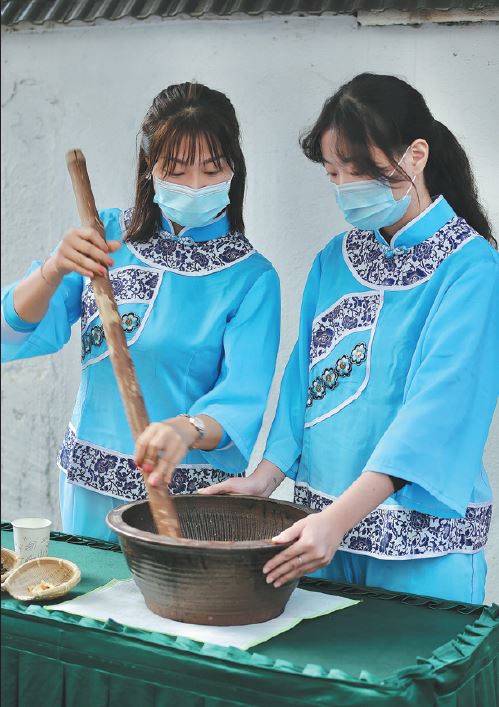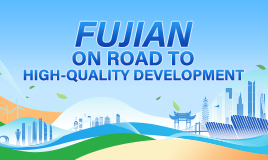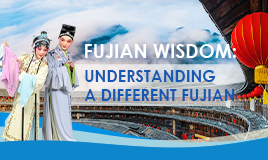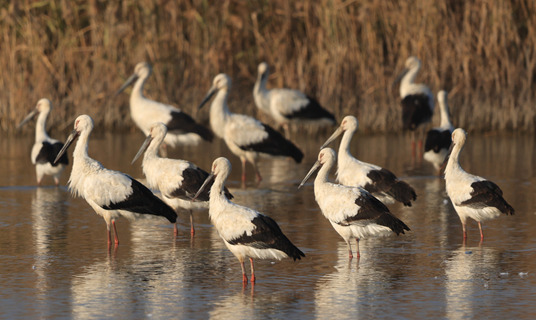Xi's vision drives nation's fresh green philosophy

Changkou residents make a local specialty, Lei Cha, or pounded tea, last month. [Photo by Hu Meidong/China Daily]
Benefits
On April 11, 1997, Xi-then deputy secretary of the Communist Party of China Fujian Provincial Committee-made an inspection tour of the village, which alerted Changkou's farmers that their home's environmental advantages could deliver more benefits than they had ever imagined.
Zhang's predecessor, Gao Falu, who served as village Party chief from 1995 to 2012, said he remembered Xi's visit as if it had happened yesterday.
As village head, Gao accompanied Xi during his inspection tour. "He spoke with my fellow residents, learning about their lives, jobs, incomes and children's education," the 59-year-old recalled.
"Before leaving, he looked at the Jinxi River and the mountain across the river, and said 'Lucid waters and lush mountains are priceless assets.' He asked us to strengthen environmental protection and devise viable plans to explore the resources on the mountain, river and farmland."
Local officials said that while Xi worked in Fujian between 1985 and 2002, he attached great importance to environmental protection.
In 2002, during an inspection tour of Sanming city in his capacity as Fujian's governor, Xi told officials at a meeting that green mountains and clear waters seemed of little value for the time being, but in the long term, they would be priceless assets.
He urged the officials to strive to transform methods of economic growth and to avoid damaging the environment while pursuing development.
Xi's instruction turned out to be a game changer for Changkou.
Led by Gao, the village decided not to sell the mountain and trees, but rather to use the environmental advantages to attract investment that would create jobs and raise farmers' incomes, laying the emphasis on ecotourism and sustainable agriculture.
In 1999, the village formulated its first general plan for environmental development, which was revised in 2012, 2018 and last year.
Taking advantage of the river, the village introduced a rafting project with investment of 30 million yuan.
The village holds a 10 percent share in the project, which became operational in 2013 and has generated regular revenue while creating jobs for local farmers.
More than 10,000 tourists use the rafting facilities every year.
Because her home lies on the road that leads to the tourist site, Zhong Yuying opened a grocery store in 2017. She said she has benefited greatly from ecotourism.
"During the busy season, I can earn more than 1,000 yuan per day from my store," she said.




